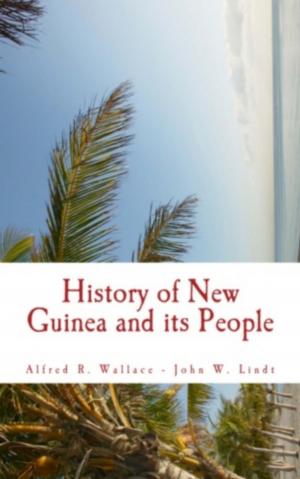A Trip around Iceland
History of the country and its people
Nonfiction, History, Scandinavia, European General| Author: | Louis P. Gratacap | ISBN: | 9782366595864 |
| Publisher: | LM Publishers | Publication: | April 12, 2018 |
| Imprint: | LM Publishers | Language: | English |
| Author: | Louis P. Gratacap |
| ISBN: | 9782366595864 |
| Publisher: | LM Publishers |
| Publication: | April 12, 2018 |
| Imprint: | LM Publishers |
| Language: | English |
The study of islands, whether the attention of the visitor is directed to their structure or their inhabitants, yields a peculiar pleasure. They are quite definite and unique units. They reveal interesting relations with neighboring continents, of which they so often are merely separated fragments, and they afford texts for suggestive and fascinating speculations as to past geographical conditions. "Icelander has felt the stirring agencies which everywhere in national life are advancing ideals, improving methods of living and awakening commercial ambition. This is more marked now since, after long years of almost fruitless agitation, the home government — I mean the governmental functions exercised in the island itself is placed in the hands of Icelanders, and a practical sympathy with its needs has already established useful changes. It would seem dangerous to go too far in an effort to separate the island from Denmark, as a parental supervision implying support and protection is indispensable. The maintenance of banks, a more general utilization of a medium of exchange, increased facilities of obtaining manufactured articles, internal improvements, in the extension of roads, building of bridges, telegraph connections, have all sensibly contributed to awaken the Icelander, given him new satisfactions, stirred the desire for accumulation, and introduced to his attention new projects for the development of natural advantages, as, for example, the possible use of water power for electrical and manufacturing ends. There is a strong mentality in the Icelander that is not inappositely united with imaginative power, and combined with distinctively religious propensities; such a nature under the stimulus of education develops strong and helpful personalities and remarkable powers of acquisition. Scholarship is far from uncommon, and skill in composition is admired and displayed. A slight social segregation is perhaps becoming evident as competency, educational opportunities and self-indulgence separate an upper from the more peasant classes. Yet the traditional democratic instincts remain and will always assert themselves at any national crisis. At present, political agitation for some sort of hegemony should be discouraged, and every energy bent towards the processes of amelioration by which transit over and through the island will become facilitated, more of its interior occupied, flocks increased, manufactures laid down and comfort disseminated."
The study of islands, whether the attention of the visitor is directed to their structure or their inhabitants, yields a peculiar pleasure. They are quite definite and unique units. They reveal interesting relations with neighboring continents, of which they so often are merely separated fragments, and they afford texts for suggestive and fascinating speculations as to past geographical conditions. "Icelander has felt the stirring agencies which everywhere in national life are advancing ideals, improving methods of living and awakening commercial ambition. This is more marked now since, after long years of almost fruitless agitation, the home government — I mean the governmental functions exercised in the island itself is placed in the hands of Icelanders, and a practical sympathy with its needs has already established useful changes. It would seem dangerous to go too far in an effort to separate the island from Denmark, as a parental supervision implying support and protection is indispensable. The maintenance of banks, a more general utilization of a medium of exchange, increased facilities of obtaining manufactured articles, internal improvements, in the extension of roads, building of bridges, telegraph connections, have all sensibly contributed to awaken the Icelander, given him new satisfactions, stirred the desire for accumulation, and introduced to his attention new projects for the development of natural advantages, as, for example, the possible use of water power for electrical and manufacturing ends. There is a strong mentality in the Icelander that is not inappositely united with imaginative power, and combined with distinctively religious propensities; such a nature under the stimulus of education develops strong and helpful personalities and remarkable powers of acquisition. Scholarship is far from uncommon, and skill in composition is admired and displayed. A slight social segregation is perhaps becoming evident as competency, educational opportunities and self-indulgence separate an upper from the more peasant classes. Yet the traditional democratic instincts remain and will always assert themselves at any national crisis. At present, political agitation for some sort of hegemony should be discouraged, and every energy bent towards the processes of amelioration by which transit over and through the island will become facilitated, more of its interior occupied, flocks increased, manufactures laid down and comfort disseminated."















